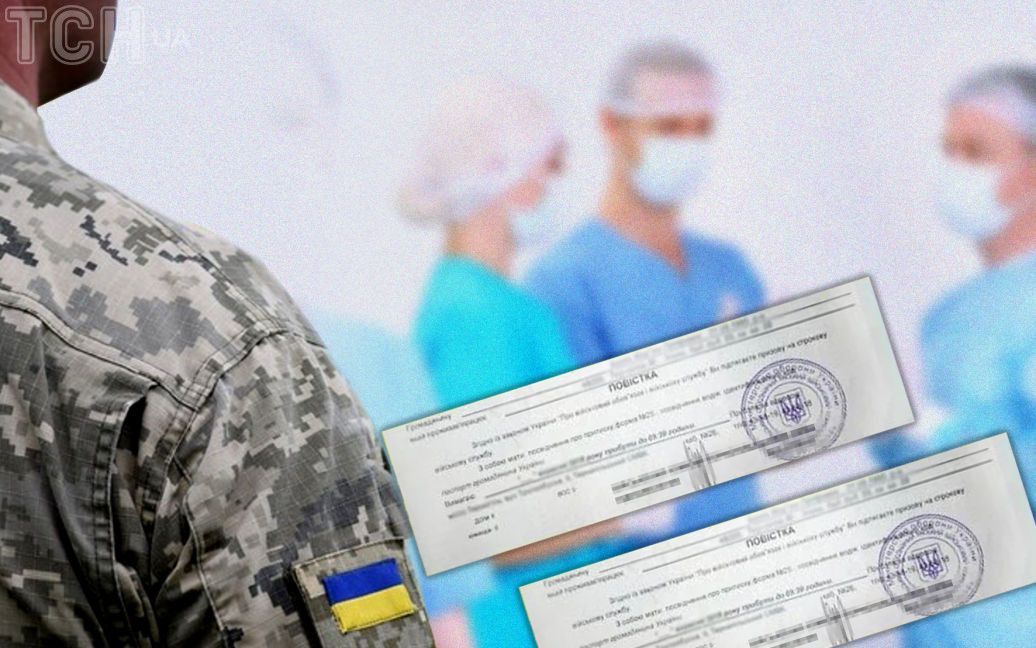Changes in the conduct of the VLC, and how to determine whether a person is fit or unfit for service?
In May 2024, important changes will come into force regarding the determination of fitness for service, as well as the military medical examination, as these changes will be implemented in accordance with the law on mobilization and the updated order No. 402 of the Ministry of Defense.
What has changed in the conduct of the MPC? The document effectively eliminates the individual assessment by a doctor of whether a soldier is fit or unfit for service.
The decision of the regular HQC on the control examination is binding within a month.
It is also noted that the decision of the regular MEC on the control examination (for those who appeal the MEC's decision) is binding within a month and the examination will take place in another institution.
The status of limited fitness for military service has been eliminated and will not be replaced.
"Even before the vote on the so-called law on mobilization, a large number of lawyers, attorneys and civil society activists constantly emphasized that there should be an intermediate status between unfit and fit. On the positive side, the Ministry of Defense of Ukraine heard this, so the updated legislation provides for such a status as "Fit for service in military support units, TCC and JV, higher education institutions, training centers, institutions, medical units, logistics, communications, operational support, security units."
Experts emphasized that it is not equal to the previous "limited fitness". To determine whether a soldier acquires this status, one should look at Order No. 402, the schedule of diseases and its annexes.
The updated disease schedule has become stricter
In the context of dismissal from service for military personnel with minor disorders of body functions, the updated schedule of diseases has become more stringent.
Such diagnoses will no longer be grounds for a conclusion of unfitness for service.
For example, servicemen with coronary heart disease with stage I heart failure, who were previously limitedly fit, will now be fully fit - even for service in the Airborne Forces. Servicemen with hernias with moderate or minor impairments will also be fit, but with the exception of the possibility of serving in the Airborne Forces.
Minor impairments due to diseases of the musculoskeletal system, osteoarthritis, spinal diseases, limb injuries and fractures are also grounds for determining the military to be fully fit.
For some common diseases, service was still restricted to rear units only. For example, a soldier with non-corrosive heart disease and heart rhythm disorders with stage I heart failure could have been fully fit for service before, but now he is only fit for "rear" positions. Also, servicemen with mild mental manifestations or moderate neurotic and depressive disorders, who were previously limitedly fit, will be suitable only for rear positions.
New rule on unfitness for military service
There is a new rule - when those who are unfit for military service/unfit with a re-examination in 6-12 months during the period of discharge cannot perform official duties for health reasons, the Military Qualification Commission simultaneously with the decision on unfitness adopts a resolution "Requires release from official duties for health reasons for the period necessary to issue a discharge, but not more than 30 calendar days from the date of completion of the medical examination." This is an important change that makes it possible not to be involved in combat missions or other official duties after being declared unfit by the commission.
The maximum period of continuous treatment for military personnel has been changed
The maximum period of continuous treatment for military personnel, including sick leave and leave for treatment after injury (contusion, trauma or maim), has been changed.
"Now it is possible to be treated continuously for up to 12 months, while maintaining financial support, both in Ukraine and abroad. A mandatory medical examination by the VLC is required during the first 4 months of treatment (to determine the need for further treatment)."
Treatment abroad involves the time of medical care, transportation between medical institutions, waiting time between stages of treatment, rehabilitation or prosthetics.
And now soldiers with amputated limbs will be able to resign at will
However, an individual assessment is a major corruption risk. This decision should finally solve the prob-lem when a doctor could declare a soldier fit for service after a severe "acubarotrauma" ("contusion").
"Now such conditions as amputation of limbs, loss of one eye, severe "shark trauma" are considered unfit for military service. And it is very important that now soldiers with amputations will be able to resign at will."
For the military who are treated abroad, remote military medical examinations are provided.
This requires a referral from their commanders and documents about their treatment in foreign medical facilities. Upon their return, such soldiers will have to undergo a mandatory military medical examination to determine their fitness for service or the need for long-term treatment.
To determine the need for leave to treat an illness or injury, the soldiers will be sent for a medical exa-mination.
As a reminder, the members of the MEC will no longer be able to make decisions at their own discretion.
Thus, we can see that the amendments adopted not only to the current law are adopted in accordance with the changes in the requirements of the time and the imposed martial law in Ukraine, but also in relation to business activities in accordance with the fact that a legal analysis of the situation, analysis of documents and verification of documents by a lawyer and a legal opinion were conducted.





























